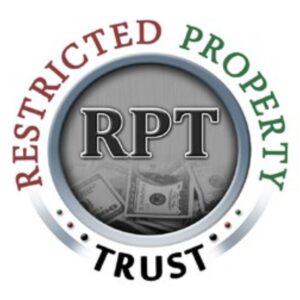Building Financial Fortitude: The Benefits of Restricted Property Trusts
Building Financial Fortitude: The Benefits of Restricted Property Trusts
Blog Article

In the ever-changing world of finance safeguarding your assets is more crucial than ever. Restricted Property Trusts (RPTs) offer a strategic approach to fortify your financial safety and provide a reliable way to protect valuable assets from risk and risks. Restricted Property Trust function and why they are a powerful instrument in protecting assets.
What Are Restricted Property Trusts?
The Restricted Property Trust is a specially designed financial vehicle that is intended to guard and manage precious assets by imposing specific limitations on their use as well as transfer. Contrary to traditional trusts RPTs impose certain limitations on the manner in which assets can be accessible or distributed. This provides a level of security against potential claims and legal concerns.
Key Benefits of Restricted Property Trusts
1. Increased Asset Protection The primary advantages of RPTs is their capability to protect assets from lawsuits, creditors as well as other financial threats. Through the placement of assets into an RPT, individuals can safeguard their assets from legal proceedings or financial disputes, and ensure that their assets are secure.
2. Tax Benefits: RPTs could provide tax benefits that are significant. The trust's contributions could be tax-deductible and the income earned by the trust's assets may enjoy favorable tax treatment. This could result in significant benefits in tax over time. enhancing the overall financial health that the trust member enjoys.
3. Strategies for Estate Planning RPTs are essential role in estate planning by allowing individuals to transfer assets to beneficiaries and maintain control over how and when those funds are divided. This will help reduce estate taxes and avoid probate's complications and streamline the transfer of wealth.
4. Controlled Distribution: Despite the restrictions, RPTs offer flexibility in managing assets. The trustees will be given specific instructions on how they should handle the assets, ensuring that they are utilized in line with the person's financial goals and legacy plans.
Setting Up a Restricted Property Trust
Making an RPT requires many steps. The first step is to consult a financial advisor or estate planning attorney who specializes in RPTs, to design an RPT that is suitable for your needs. The trust agreement will detail the limitations on asset use and transfer, and specify the roles and responsibilities of the trustees.
Regular updates and reviews of the RPT could be necessary to ensure that it continues to meet your financial goals and is able to adapt to changes in your circumstances.
Conclusion
Restricted Property Trust offer a strategic solution for fortifying your assets while also enhancing the safety of your financial assets. By leveraging the unique benefits of RPTs, you can secure your wealth, benefit from tax benefits and simplify your estate planning process. Consulting with a knowledgeable professional is crucial to customize the trust to meet your individual needs, ensuring the assets you have protected and your financial security is assured. Embrace the effectiveness of RPTs to help you build a strong foundation for long-term financial stability along with peace of head. Report this page